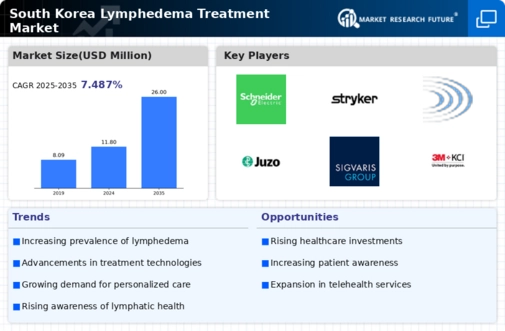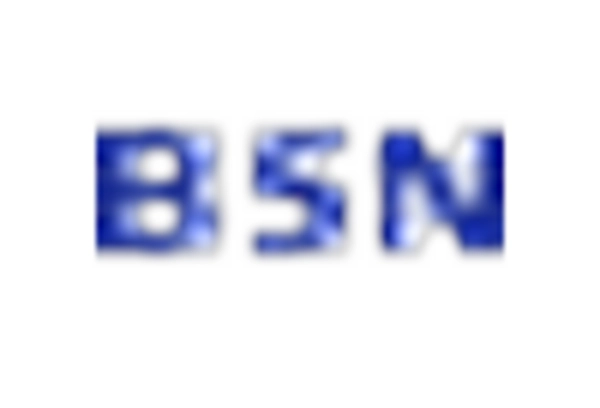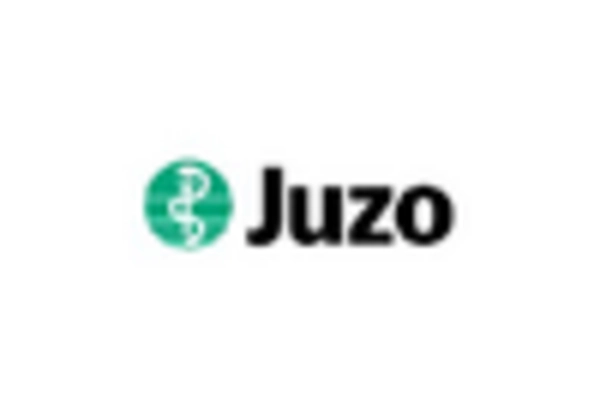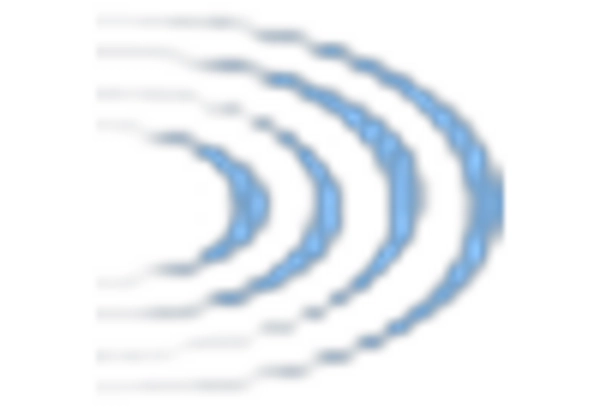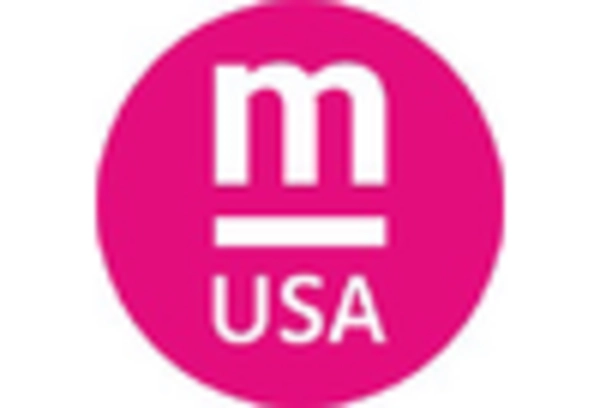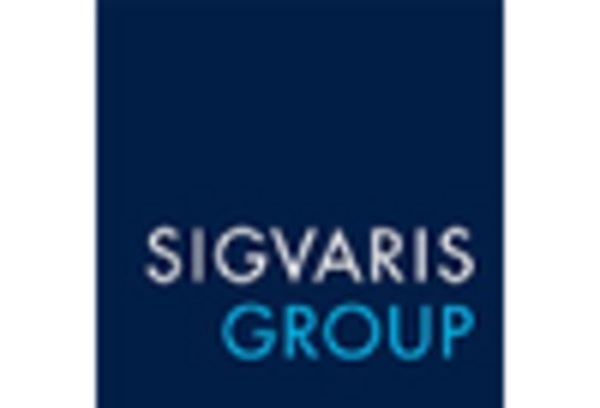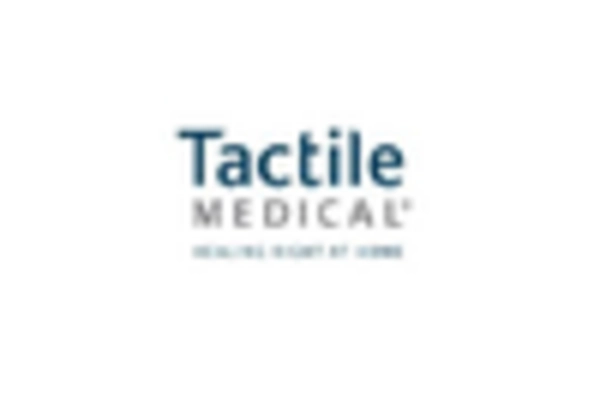Government Initiatives and Funding
Government initiatives aimed at improving healthcare access and funding for chronic conditions are pivotal for the lymphedema treatment market. In South Korea, the government has implemented various programs to enhance the quality of care for patients with chronic diseases, including lymphedema. Recent allocations of approximately $50 million to support research and development in this area indicate a commitment to improving treatment options. These initiatives not only facilitate better access to therapies but also encourage innovation within the market. As funding increases, it is anticipated that new treatment modalities will emerge, further stimulating the lymphedema treatment market and providing patients with more effective solutions.
Increasing Incidence of Lymphedema
The rising incidence of lymphedema in South Korea is a critical driver for the lymphedema treatment market. Factors such as an aging population and the prevalence of chronic diseases, including cancer, contribute to this trend. According to health statistics, the number of patients diagnosed with lymphedema has increased by approximately 15% over the past five years. This growing patient base necessitates enhanced treatment options and services, thereby propelling market growth. Furthermore, the increasing awareness among healthcare professionals regarding the condition's management is likely to lead to more patients seeking treatment. As a result, the lymphedema treatment market is expected to expand significantly, driven by the need for effective therapies and support systems for affected individuals.
Technological Innovations in Treatment
Technological advancements in treatment modalities are transforming the lymphedema treatment market. Innovations such as advanced compression garments, pneumatic compression devices, and digital health solutions are becoming increasingly prevalent. For instance, the introduction of smart compression devices that monitor patient progress in real-time has shown promising results in enhancing treatment efficacy. The market for these technologies is projected to grow at a CAGR of 10% over the next five years. As healthcare providers adopt these innovations, the overall quality of care for lymphedema patients is likely to improve, thereby driving market expansion. The integration of technology into treatment protocols may also lead to better patient adherence and outcomes.
Rising Demand for Personalized Treatment Plans
The shift towards personalized treatment plans is emerging as a significant driver in the lymphedema treatment market. Patients are increasingly seeking tailored therapies that address their specific needs and conditions. This trend is supported by advancements in diagnostic tools that allow for more accurate assessments of lymphedema severity. As healthcare providers recognize the importance of individualized care, the market is likely to see a rise in customized treatment options, including targeted therapies and specialized rehabilitation programs. This focus on personalization not only enhances patient satisfaction but also improves treatment outcomes, thereby contributing to the growth of the lymphedema treatment market.
Increased Collaboration Among Healthcare Providers
The growing collaboration among healthcare providers is a notable driver for the lymphedema treatment market. Multidisciplinary approaches that involve oncologists, physiotherapists, and nutritionists are becoming more common in managing lymphedema. This collaborative model ensures comprehensive care, addressing various aspects of the condition. Recent studies suggest that patients receiving multidisciplinary care experience better outcomes and higher satisfaction rates. As healthcare systems in South Korea continue to promote integrated care models, the lymphedema treatment market is expected to benefit from enhanced service delivery and improved patient management strategies. This trend may lead to a more robust framework for treating lymphedema, ultimately fostering market growth.


